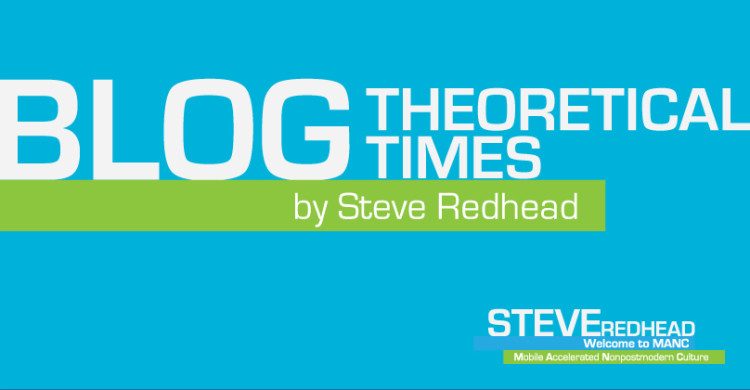
Phew! For a while back there postmodernism and its discontents threatened a permanent blockage in the social sciences and humanities. Especially when postmodernism became, misleadingly, for some strange reason mixed up with poststructuralism. But PoMo kind of got its come uppance eventually which opened the way for imaginative, critical and creative intellectual debates about the new materialism (or more accurately new materialisms) and the most appropriate realist methodologies for that new materialism. In the second decade of this new century, realism is back and new realisms are suddenly seemingly everywhere you look. Critical realism, ultra realism, speculative realism – the list goes on.
The eminent critical criminologist Steve Hall, one of the originators of ultra realism in criminology, labelled my book Football and Accelerated Culture: This Modern Sporting Life (now out in a 2017 paperback edition with Routledge) full of raw realism and high theory. It is an accolade that I treasure. That lethal mixture, of high theory/raw realism, in my view should be the aim of all our work in the humanities and social sciences but it is easier said than done. Sometimes the theoretical work forgets to root itself in raw (or other) realism, almost forfeiting the methodological side of things. In other cases the methodological overwhelms the theoretical leaving an empiricist strand to the work. The real trick is to combine the theoretical and methodological – they are not a simple binary division (theory/methodology) but a complex interrelationship. This is often the case with ethnographic work for example where theory often looks like an afterthought. High theory has been subjected to its own reconstruction in the last decade since the Global Financial Crisis. Just think of the excellence of the recent work by Alain Badiou and Slavoj Zizek. For example, Slavoj Zizek’s recent books from 2017 The Courage of Hopelessness and Incontinence of the Void are among the best and most penetrative work of his entire career. In the last twelve months Alain Badiou has published the brilliant Black: The Brilliance of a Non-Color and the disturbing critical analysis of the violence of globalism and terrorism entitled Our Wound is Not So Recent: Thinking The Paris Killings of 13 November. Badiou and Zizek are more prolific as they get older – and more influential globally than ever before on all sorts of scholarship around the world. (Raw) realism has also had its renovation but that has been more hidden in obscurity in intense conversations about idealism and materialism.
A fascinating forum for all of this high theoretical and realist methodological debate is the superb Edinburgh University Press book series edited by Graham Harman which is boldly entitled Speculative Realism. Adrian Johnston’s must-read book Adventures in Transcendental Materialism: Dialogues With Contemporary Thinkers is published in the Speculative Realism series though Harman acknowledges that Johnston is not wholly a speculative realist. Johnston’s powerful concept of ‘transcendental materialism’ fits his own work and also the recent output of Badiou and Zizek and those they have influenced around the world in recent years. Johnston has also speculated about ‘any future materialisms’ in theory that may develop, partly critiquing the over-proliferation of new materialisms but also claiming a stake in their future development.
Speculative Realism though is much more than a book series. It is a global movement. Harman has shown how in 2007 at a colloquium in London speculative realism came of age as a movement in continental philosophy and has claims on the idea that it is the only new such development in the twenty first century. It further, like Adrian Johnston’s work, combines with the search of Zizek and Badiou for a new materialist Hegelian/Lacanian Marxism for the present day and its overwhelming crises. Star philosophers like Quentin Meillassoux, once a student of Alain Badiou, are part of the speculative realist movement in theory and Harman has written a high class in-depth book on the emergence of Meillassoux for the series. Quentin Meillassoux: Philosophy In The Making(now into a second edition) includes a large excerpt from Meillassoux’s much sought after doctoral thesis from the 1990s. New books in the series include a volume on speculative realism and science fiction and speculative realism and British romanticism.
So new realisms are on the rise. Stimulated by the vacuum left by vacuous PoMo, but also by the need to connect methodologically with the new materialisms. A new realism for a new materialism!